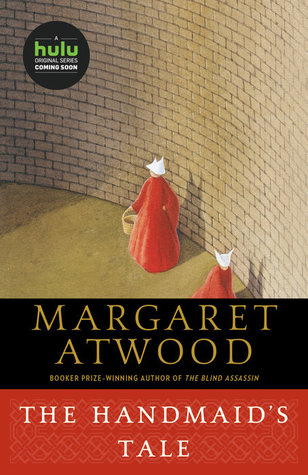Synopsis
4 out of 5 stars
In anticipation of season 2 of Hulu's The Handmaid's Tale which airs on the 25th of April (which I'm only just now realizing is in two days!), I decided it was finally time to publish my review of the book. Now, when I review books, I usually (successfully, if I do say so myself) attempt to critique world building, character development and arcs, and writing rather than how the narrative makes me feel. Allow me to elaborate: while I do recognize that it is necessary to explain how books whose subjects are sensitive topics such as racism, sexism (which this story does explore), homophobia, etc. I think it's important to avoid putting emphasis on how the anecdote made you feel (for instance, The Handmaid's Tale was especially dark and made me feel depressed) lest it affect how you rate the book.
I point I was trying to make above was more of a reminder for me to consciously avoid making the mistake of doing what I mentioned than anything, but if it's advice that's helpful to you, then by all means, heed it! On that note, my thoughts on the book are as follows: this was not my first Margaret Atwood book, believe it or not, I read but have not yet finished (at the time of this post's publication) Hagseed, an installment in the Hogarth Shakespeare series of Shakespeare retellings by various authors (some of which include Anne Tyler and Tracey Chevalier). After reading The Handmaid's Tale, I noticed that Atwood's narrative writing feels distant and almost strictly matter-of-factly. I didn't sympathize with the characters as well as I would have if the writing allowed for the reader (specifically, me) to be more sympathetic. That said, the writing did match the theme and atmosphere of the story, which leads me to believe that maybe this particular writing style was intentional on the author's part rather than by default. In any case, it works for the story.






Comments
Post a Comment